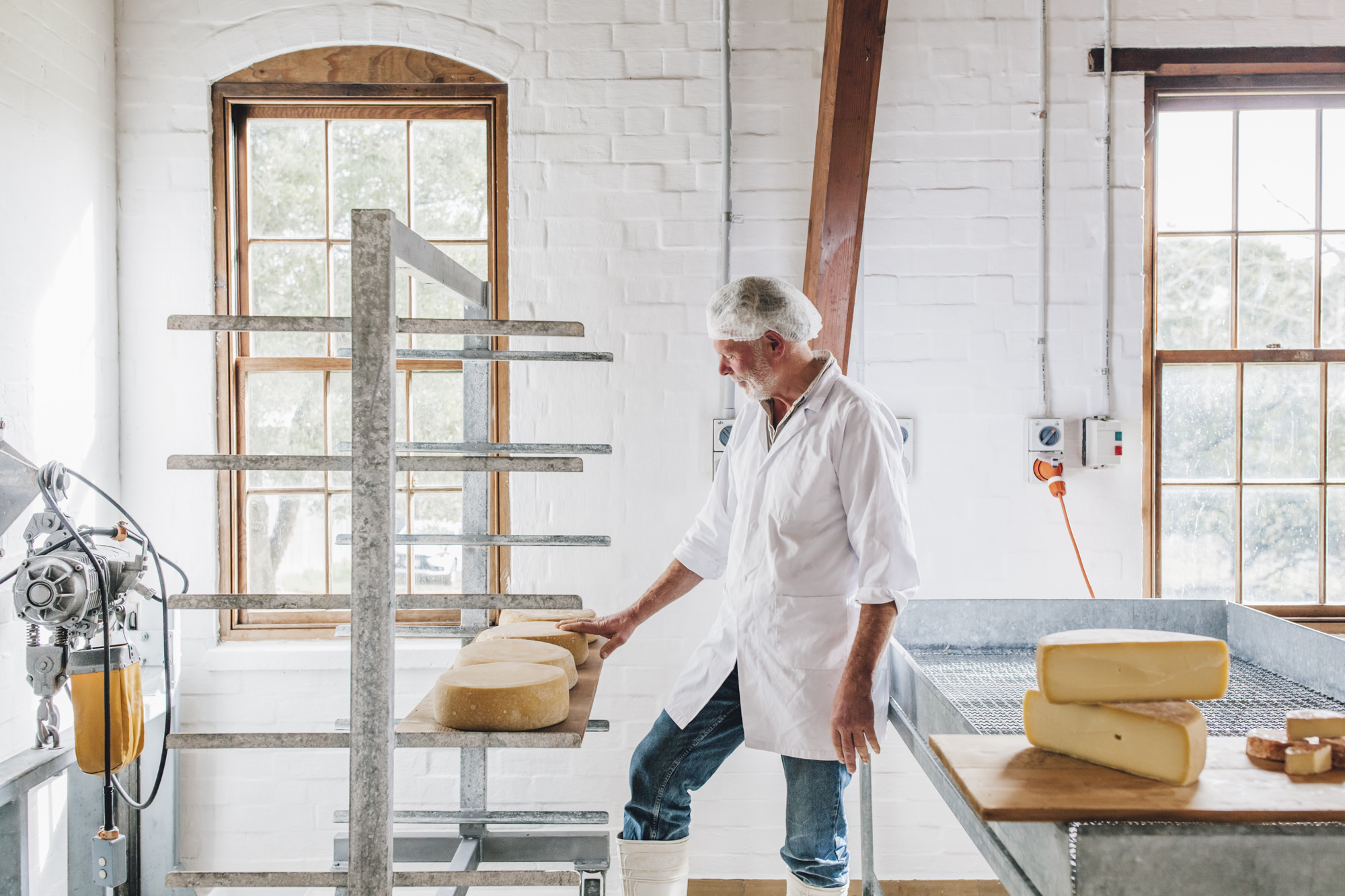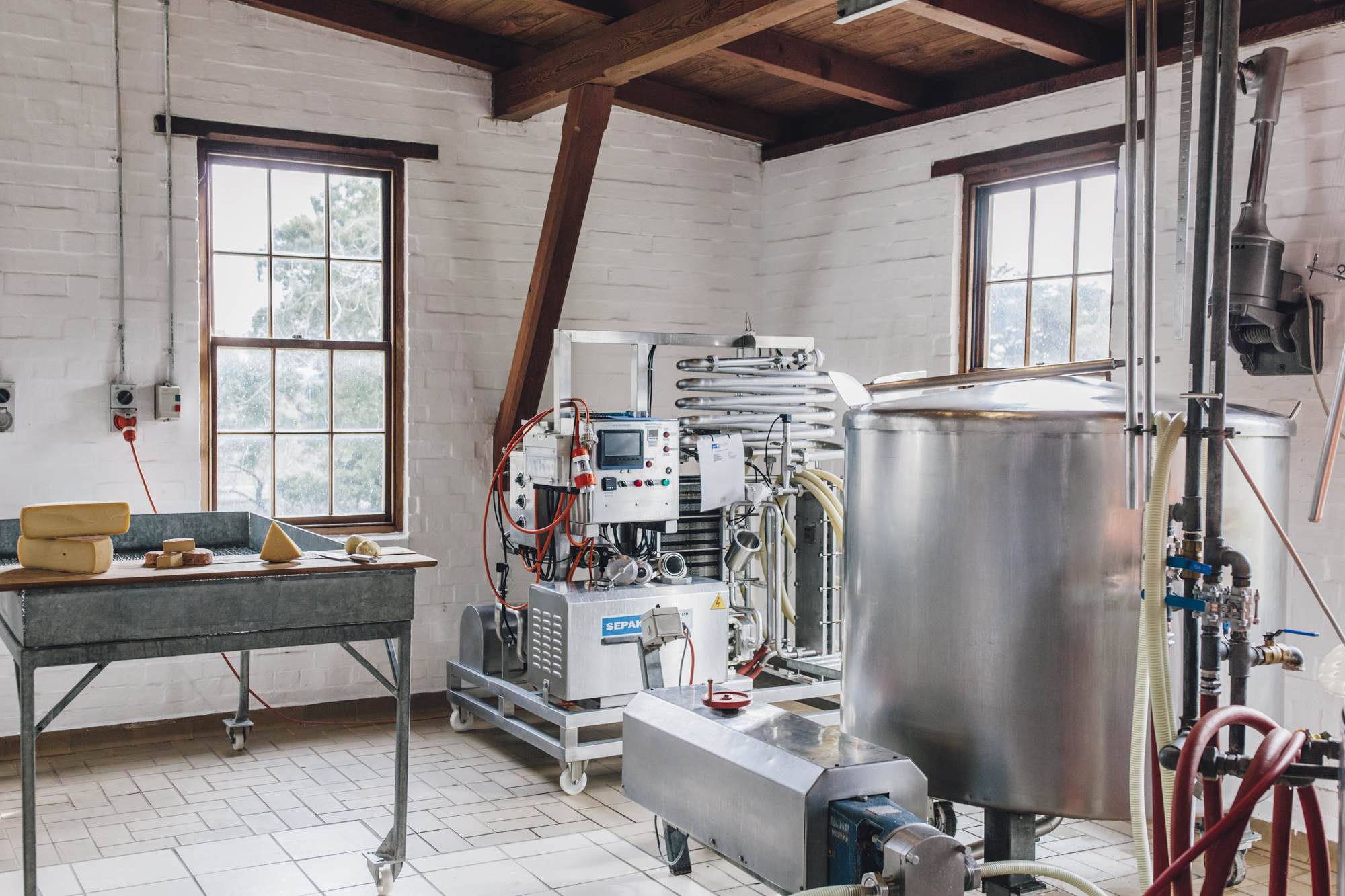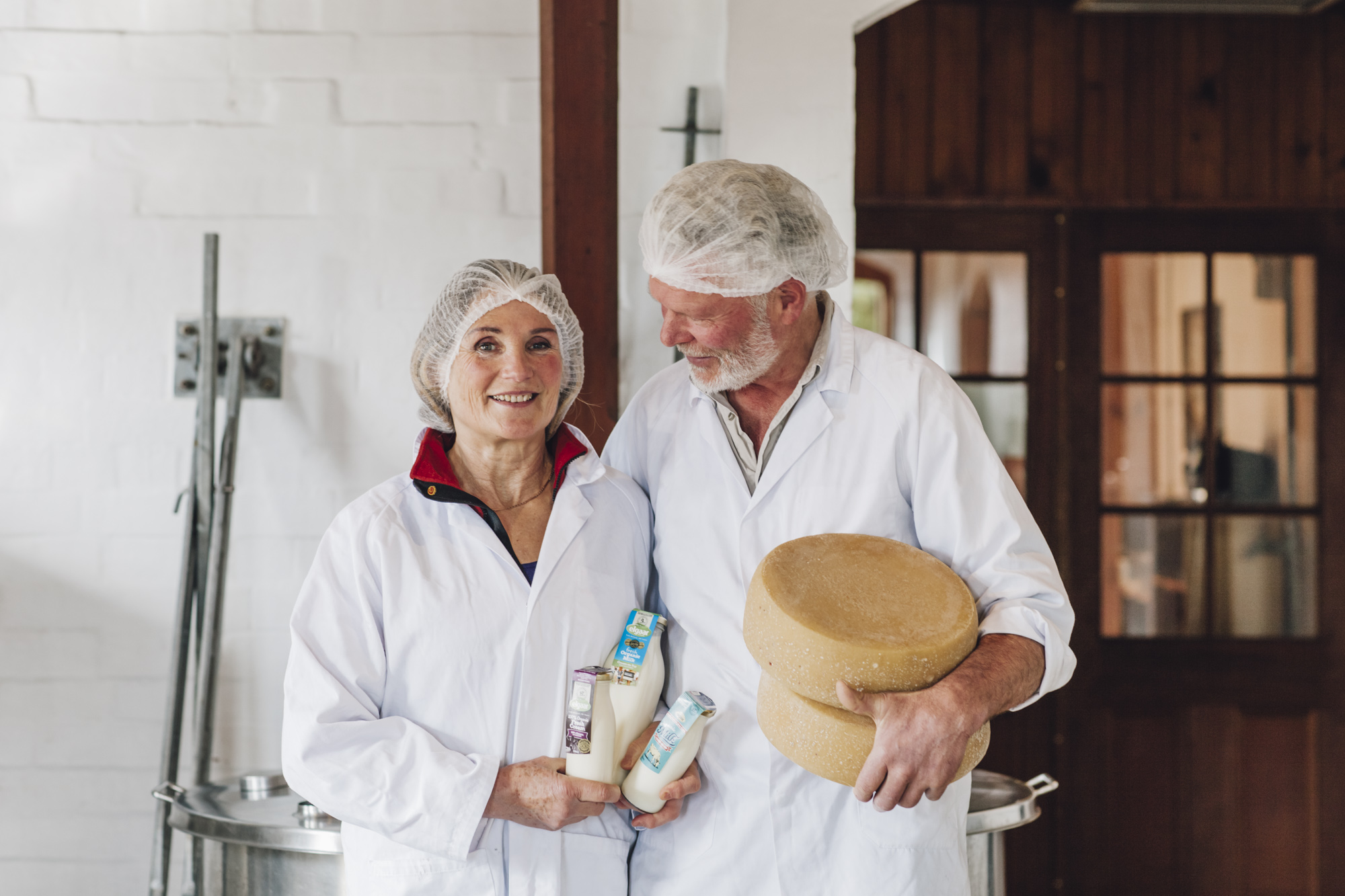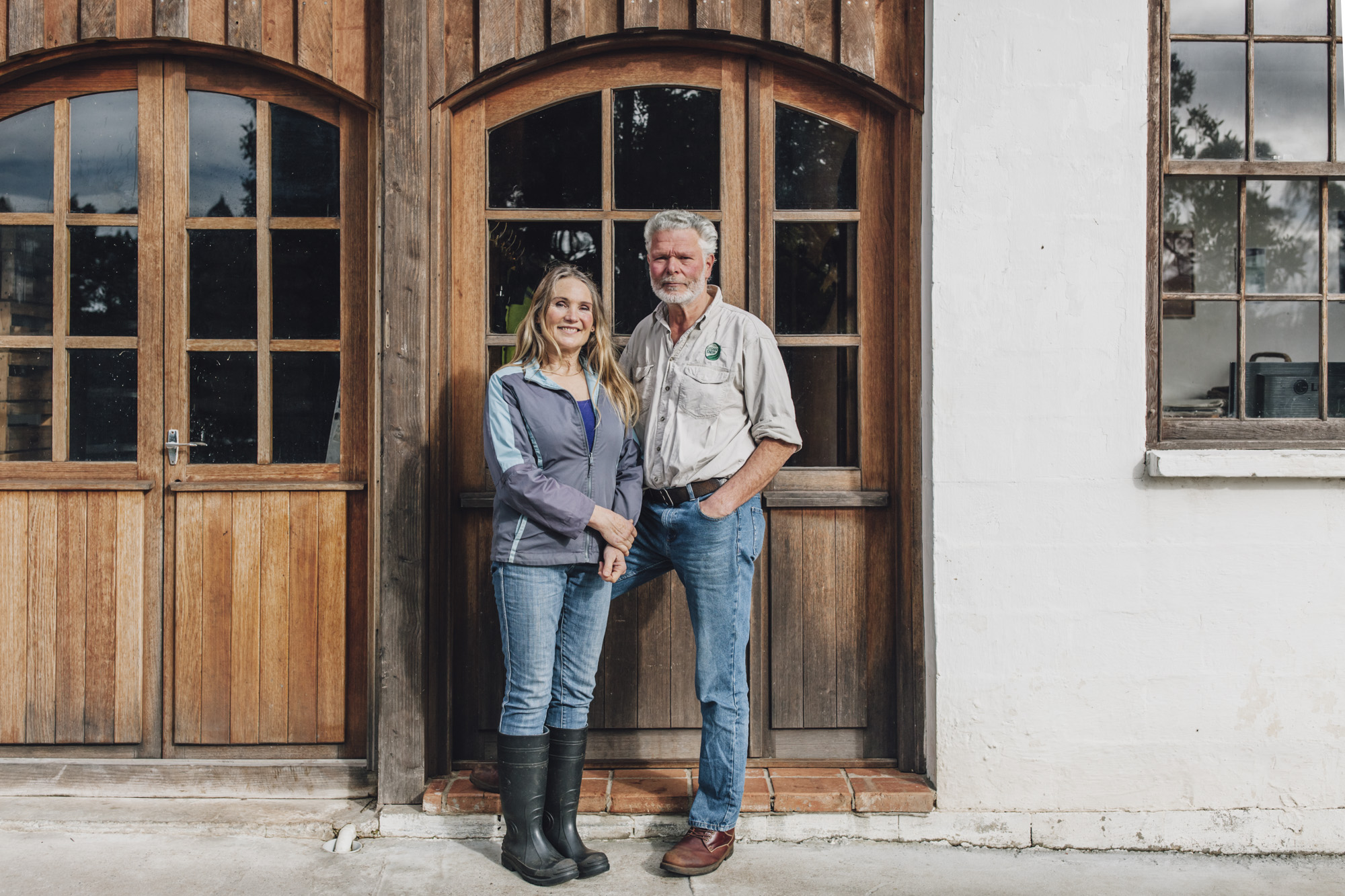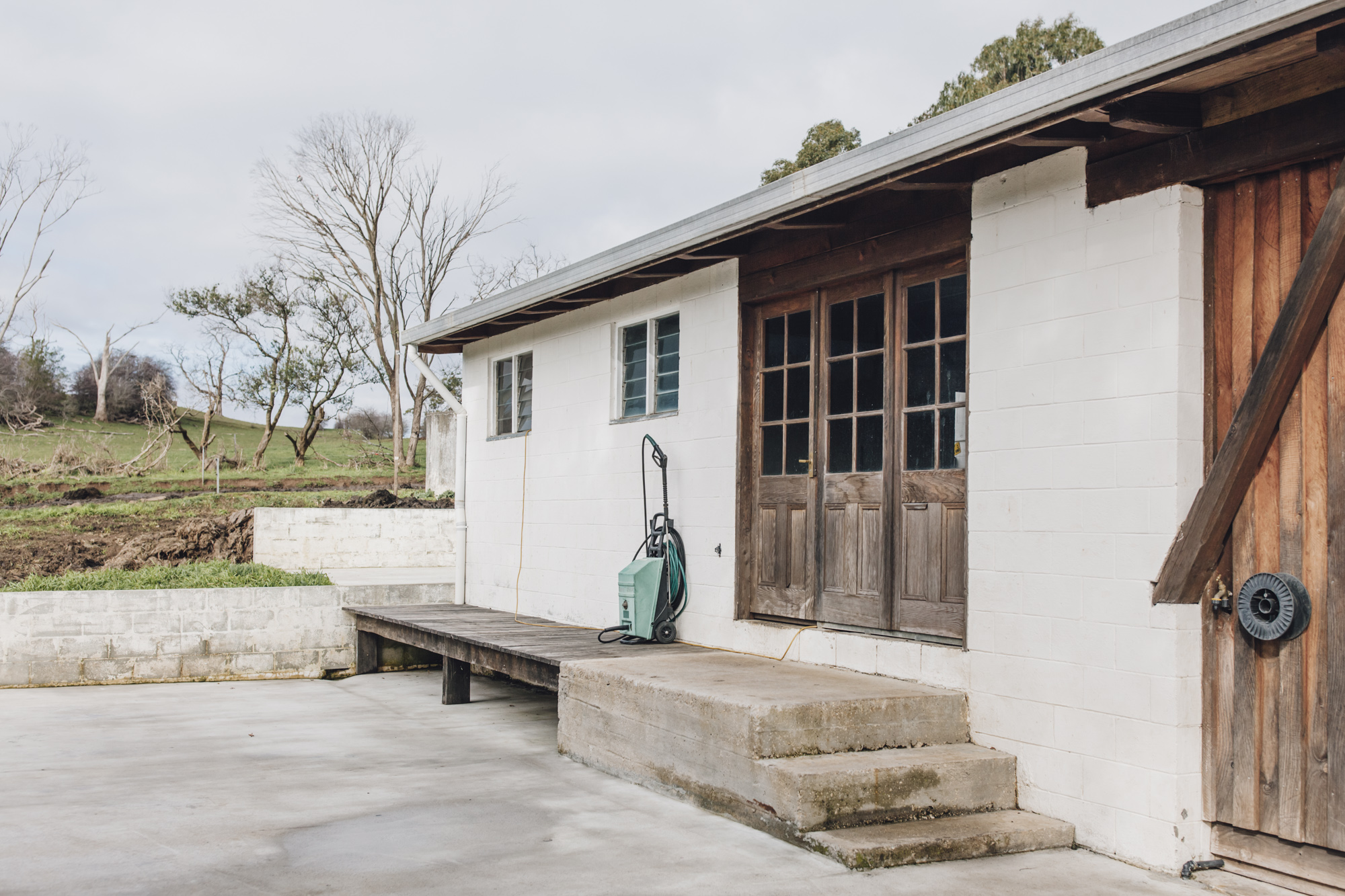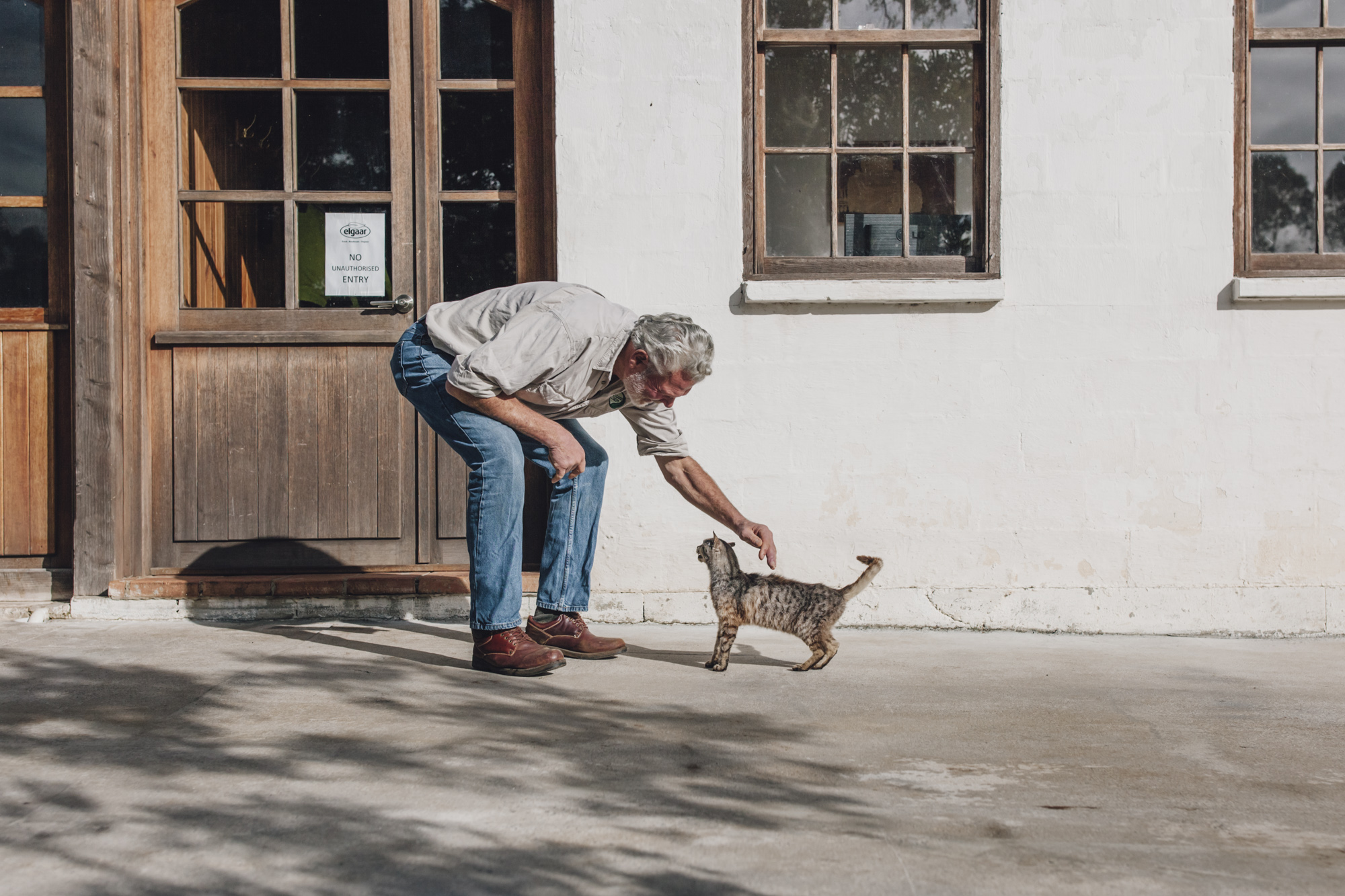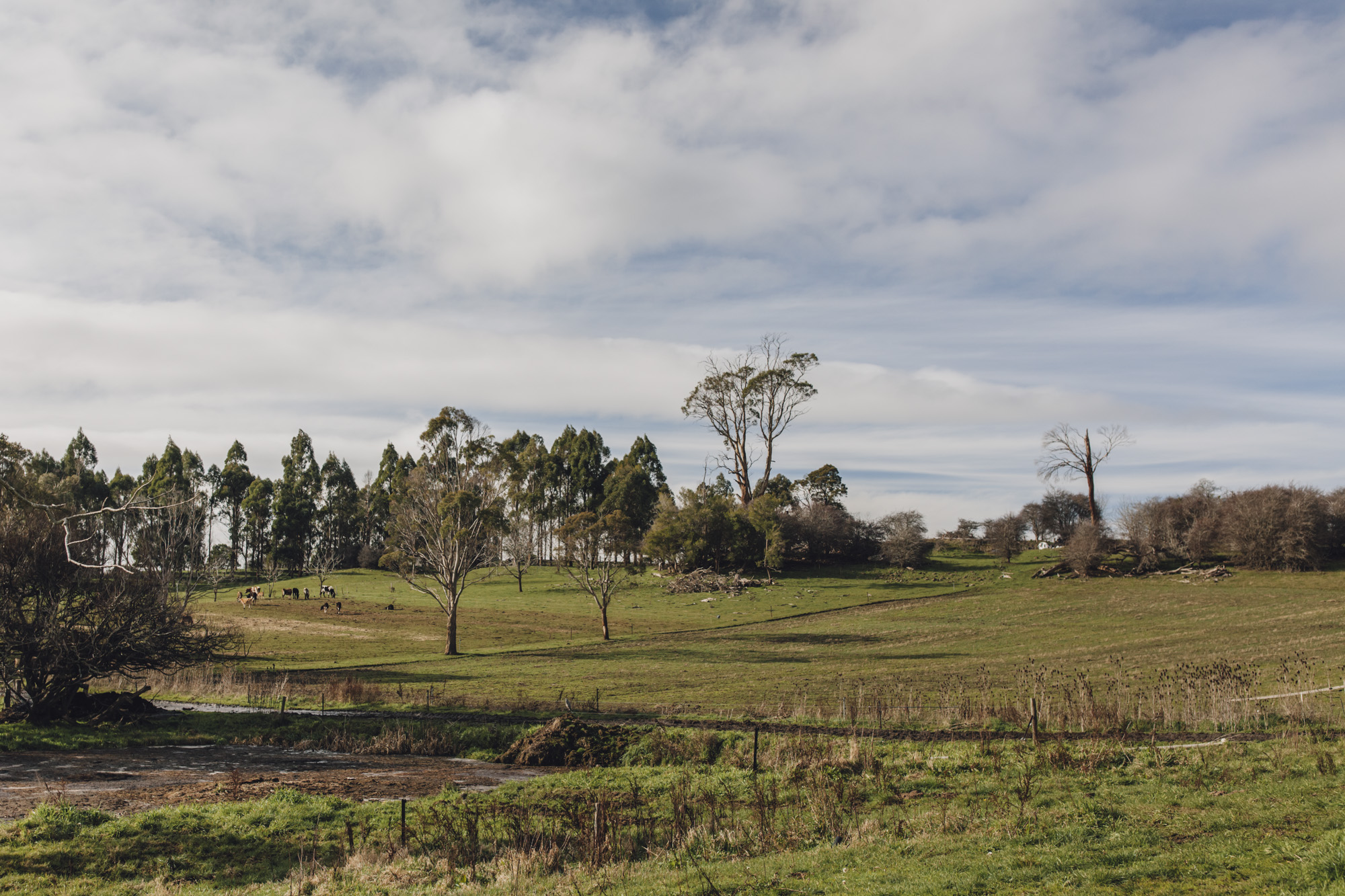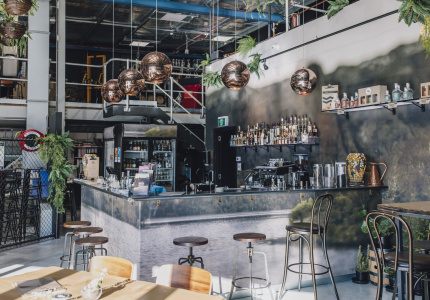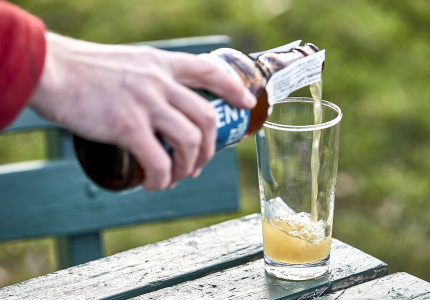The road to Joe and Antonia Gretschmann’s farm in Northern Tasmania winds through jigsaw-like plains of lush meadows and tree-lined pastures, the impressive jagged ridges of Mount Roland towering nearby. It stops at a building unusual for Australia – a Bavarian style-structure of whitewashed brick walls and steeped timber ceilings. This is the Gretschmann’s cheesery, Elgaar Organic Dairy.
The pair has been organic dairy farmers and cheesemakers in the small town of Moltema outside Launceston for 20 years. But their cheesemaking history extends back much further.
Joe was born in Berbing, Germany, to a family of farmers whose roots in the Bavarian region date back to 1450. Through the centuries the family farm was traditionally passed to the eldest son. But when it came to Joe’s turn, he realised the paradise of his childhood had vanished.
“First the orchard had gone,” he says. “Instead of 50 trees, we’d only kept five at the back of the shed. We’d stopped making butter because we had more cows, which was more work, so we bought butter instead. Then the breadmaking had stopped.”
Antonia grew up nearby in Munich, two-and-a-half hours southwest of Berbing. But she regularly took holidays to the tiny town, where she met Joe, “courted” and then studied agricultural science. When time came for the pair to take control of the farm, they made the decision to turn it organic.
“We decided to try and bring back something of the past,” says Joe. They began milling their flour, baking bread, and making butter and yoghurt from scratch. They also built a cheesery, keeping their production hands-on and small scale. “When you have a passion for something you just do it,” says Antonia. “You fit it into your day.” They even founded an organic certification standard for German farmers. “There was a bit of a wave then in Germany to bring back the more natural food production,” Joe says.
“When you have a passion for something you just do it. You fit it into your day.”
By the 1980s they decided it was time for an adventure. As business immigrants they had five options: Canada, the US, Argentina, New Zealand and Australia. “You couldn’t get much information on Australia and almost no information on Tasmania,” says Joe. “Some maps of Australia didn’t even show it.”
They brought with them their copper cheese vat (or Käsekessel) – the only one in Australia. Customs officers told them it would make for a nice outdoor bath. “But we found the embassies were very supportive of cheesemakers and it seemed like a very interesting country,” says Joe. “Totally different and a bit odd – jumping kangaroos, deserts, and just unbelievably huge.”
The pair began looking for an ideal spot to continue their passions. “Antonia said ‘I want to see Tasmania’, and I said ‘I’m not going on an island’,” remembers Joe. Having grown up in the Bavarian mountains, he didn’t even see the ocean until he was 18 years old. But in May 1986, Antonia convinced him to sail across Bass Strait. “It took me two days down here but I fell so much in love with it,” he says. “We knew this is what we wanted.” The couple pored over climate, soil and weather maps and decided it would be perfect for making cheese.
The pair began farming 250 acres in the aptly named Meander Valley, planting wildlife corridors of eucalyptus (a “marvellous, funny, untidy” tree, according to Joe) and began adding greenery back to the cleared pasture. They established a small herd of Jersey, Guernsey and Friesian-Jersey cows, and employed regenerative farming practices that sustains the terrain as well as imitating a cow’s natural habitat. This means calves and cows run with their mums, and cows experience a longer break between calving. Bobby calves stay with their mums for four months (instead of being separated at day one) and old cows can retire peacefully on the property too. “It’s a very natural approach,” says Joe. “It’s as simple as it gets.”
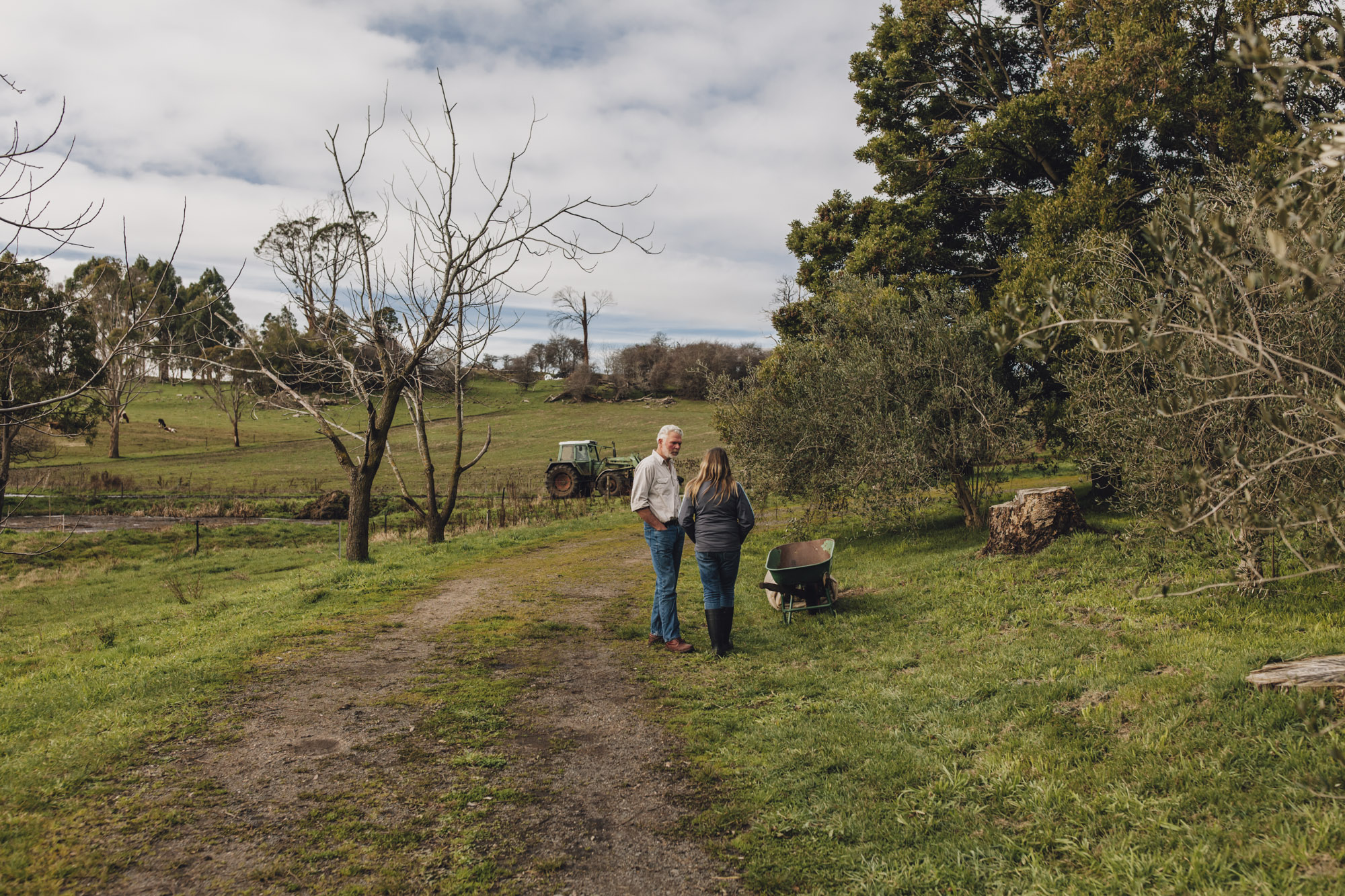
This is reflected in the couple’s cheesemaking techniques, which shirk any unnecessary inputs or synthetic additions. “It’s very traditional what we do here and how we make our cheese,” says Joe. “It’s not wild, but totally natural. We just guide it.”
In 2014 this organic approach faced a challenge. The state’s dairy authority shut down the Elgaar cheesery, decreeing the Gretschmanns’ natural methods were at odds with rules stating cheese must be made in a highly sterilised space – a ruling designed for multimillion-dollar commercial industries, not the small, environmentally minded producer.
It saw Elgaar’s production halt for more than two years, cutting off the family’s income and resulting in external staff being let go. But the local community rallied behind the beloved dairy farmers. They crowdfunded to pay for the new pasteuriser needed to regain their licence, and in October 2016, Elgaar’s returned to making milk, cream and yoghurt. “If the public hadn’t been behind us, then we would be gone by now,” says Joe. “We tell our customers every week, ‘thank you for helping us’.”
Below the cheesery is Elgaar’s cave à fromage, a space where the couple’s cheese matures. There are the beginnings of cloth-matured cheddar, a Parmesan style, a Gouda style, and a Tilsit-style washed rind they’ve dubbed Meadow cheese. They also make fresh (and deliciously salty) mozzarella, feta and haloumi. Many of Elgaar’s cheeses vary by the seasons, with different varieties driven by weather-affected production levels and the cows’ stages of lactation.
“In Italy, they say when a cow is towards the end of the lactation, the milk is a bit more tired, so it takes a bit longer to make cheeses,” says Joe. “So you don’t try to make an easy-going Emmental; you make a more complex cheese like a washed-rind Tilsit because the milk is more complex.”
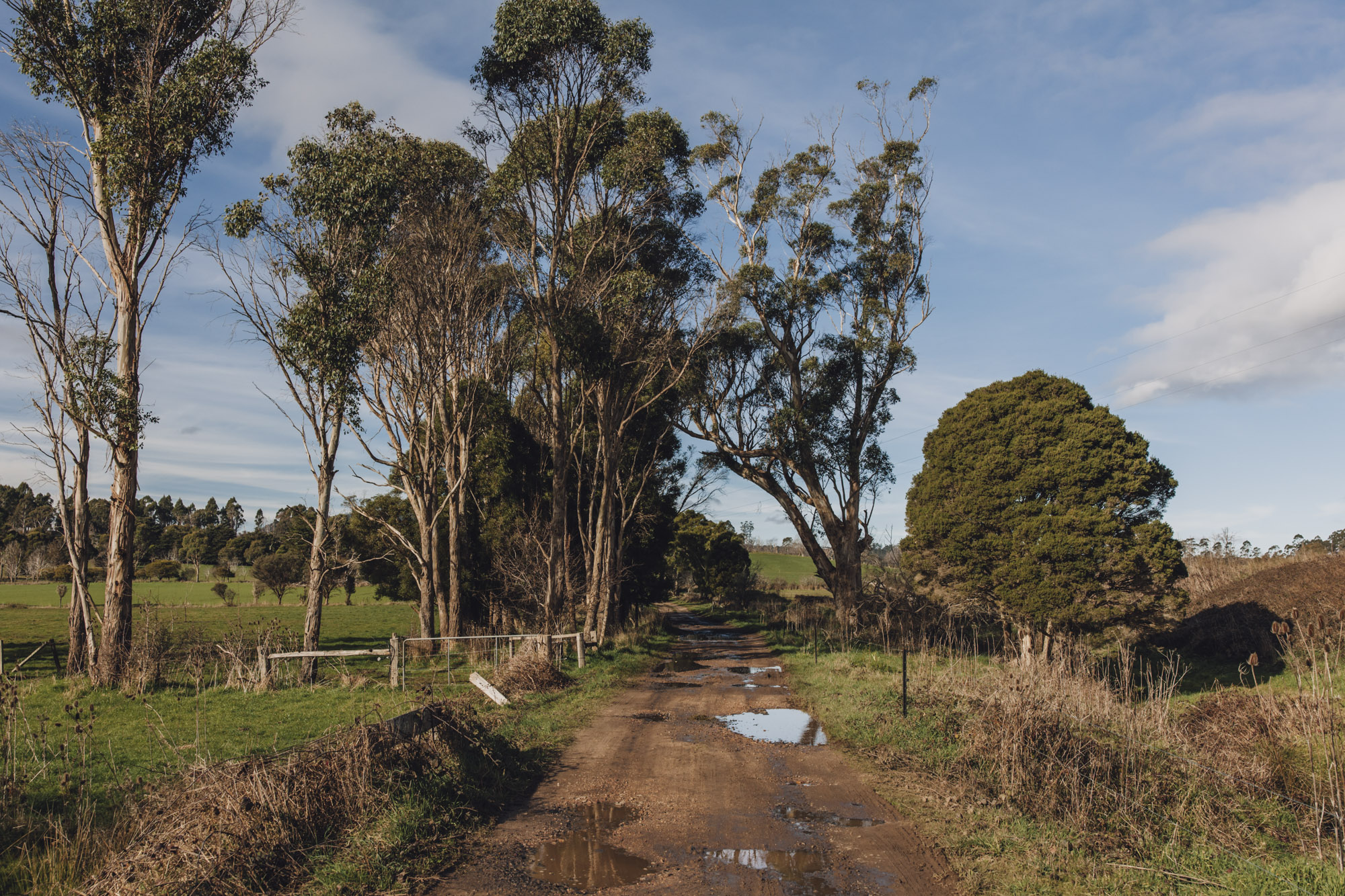
They don’t currently supply the mainland with their award-winning cheeses, preferring to stock their produce at the Launceston Harvest Market and Hobart Farm Gate Market (both weekly affairs). It matches their methods of production. “We say today we have a Gouda-style cheese and then next fortnight we might have a different style,” says Joe. “And the people go with it and love it. The flavour is not always consistently the same, but that’s the beauty to us. It’s like how apples taste different at different harvests. And that’s the way we want to keep it.
“I think that’s the way Tasmania has a huge future. It’s so refreshing to see so many small producers popping up here. Sometimes we’re surprised what secret missions long-standing farmers in Tasmania have had but never dared to pursue – like to make whisky or start farming a few sheep and make a cheese from the milk. Before they would have felt alone. But now because it’s a bit of a movement, they’re coming out with some marvellous produce.”
This article is produced by Broadsheet in partnership with Tasmania – Go Behind the Scenery. Create your own Tassie story here.
with Tourism Tasmania. Learn more about partner content on Broadsheet.
